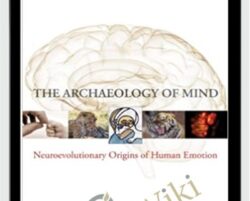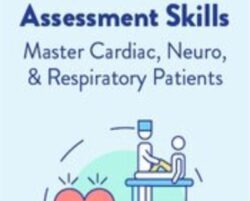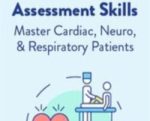Each shift, the pressure of time feels constant. We want to give our best to patients but have to prioritize, with the time that is available. We know how instrumental our physical assessments are. They constantly contribute to the patient’s picture – the plan of care, evaluating if the patient is improving….or declining.We can not afford to miss important clues that are available to us, through a top-notch assessment. The American Medical Association shared this staggering statistic….8 in 10 misdiagnoses were due, in part, to problems in the patient encounter, such as errors during the physical exam or medical history taking.” How many times in the past might you have missed identifying a concern with a patient? Do you want to be sure that does not happen again?Angelica F. Dizon, MD, MSN, MBA-HCM, BSN, RN, NP-C, will share from her extensive years in practice, working as a physician and advance practice nurse. She has collected pearls of insight that will help you, too, to finally grasp assessment strategies at an advanced level.Whether you need to perform a rapid, focused patient assessment or a more comprehensive evaluation of the patient, Angelica will elevate your own clinical skill set. Often patient care becomes very complex with multiple conditions and diagnoses overlapping. At the end of this comprehensive training, you will be able to target your clinical assessments, challenge your critical thinking and gain confidence in the interventions that you initiate — on your very next shift!Assess where and why vesicular, bronchovesicular and bronchial sounds can be normal or abnormal and the significance of the abnormalities.Appraise pathophysiology and differential diagnoses for crackles, wheezes, rhonchi and rubs.Develop management of obstructive vs. restrictive lung disease.Practice a thorough 6-part neurological exam and document findings.Evaluate primary causes of mental status changes and patients most at risk for delirium for quick intervention.Distinguish whether abnormal S1 and S2 heart sounds are pathological or benign.Determine whether systolic and diastolic murmurs indicate cardiac disease.Head-to-Toe Approach – Learn tips, tricks, and tools to conduct a quick and precise head-to-toe assessmentAssess the patient using the most comprehensive approachEvaluate baseline and identify patient status changesDevise tips and tools to perform a more efficient exam without missing key cluesConduct proper assessment skills – inspect, auscultate, palpate, percussNeurological Exam – Mastering the 6-Part components of a Neuro exam in less timeUnraveling the 6-Part components of a thorough Neurological ExaminationABCT Components of Mental StatusKey points and clues of using Confusion Assessment Method (CAM) Instrument and what can be diagnosed as a resultEvaluate an efficient and accurate assessment of normal vs. abnormal findings for: altered mental status, cranial nerves, motor, sensory, cerebellar functions, reflexesDanger Signs for abnormal findings and how to identify diseases by physical examinationRespiratory Exam – Identifying the different breath sounds and their locations to narrow down diagnosisPhysical assessment of the respiratory system – key points of normal anatomy to rememberIdentification of normal, abnormal, decreased or absent breath and lung soundsAssessment and techniques of Tactile Fremitus, percussion, lung auscultationInterpreting what you are hearing and what you should expect to hear:Bronchial, Broncho-vesicular, Vesicular Breath SoundsBronchophony, Egophony, Whispered PetroliloquyDeath Rattle, Absent Breath SoundsLearning the adventitious sounds like Crackles, Rhonchi, Stridor, Wheezes and what to do with themWhat Lung Sounds to expect in different disease statesCardiac Exam – Knowing the different murmurs, their presentation, sounds and location to accurately pinpoint the disease processExamination of mitral, tricuspid, pulmonary, and aorticAuscultation sites, sequencing and skillsCharacteristics of a functional murmurHow to identify?7-point classificationWhen does a murmur become pathologic?Strategies for detection of abnormal cardiac soundsGet Advanced Assessment Skills: Master Cardiac, Neuro, & Respiratory Patients – Angelica Dizon, Only Price $47Tag: Advanced Assessment Skills: Master Cardiac, Neuro, & Respiratory Patients – Angelica Dizon Review. Advanced Assessment Skills: Master Cardiac, Neuro, & Respiratory Patients – Angelica Dizondownload. Advanced Assessment Skills: Master Cardiac, Neuro, & Respiratory Patients – Angelica Dizon discount.advanced assessment skills, advanced, assessment quizlet, advanced assessment course, advanced assessment tax.
 The Archaeology of Mind: Neuroevolutionary Origins of Human Emotions – Jaak Panksepp
₹2,490.00
The Archaeology of Mind: Neuroevolutionary Origins of Human Emotions – Jaak Panksepp
₹2,490.00
 Create Ethereum & Blockchain Applications Using Solidity – Frahaan Hussain
₹7,138.00
Create Ethereum & Blockchain Applications Using Solidity – Frahaan Hussain
₹7,138.00
Advanced Assessment Skills: Master Cardiac, Neuro, & Respiratory Patients – Angelica Dizon
₹7,138.00





